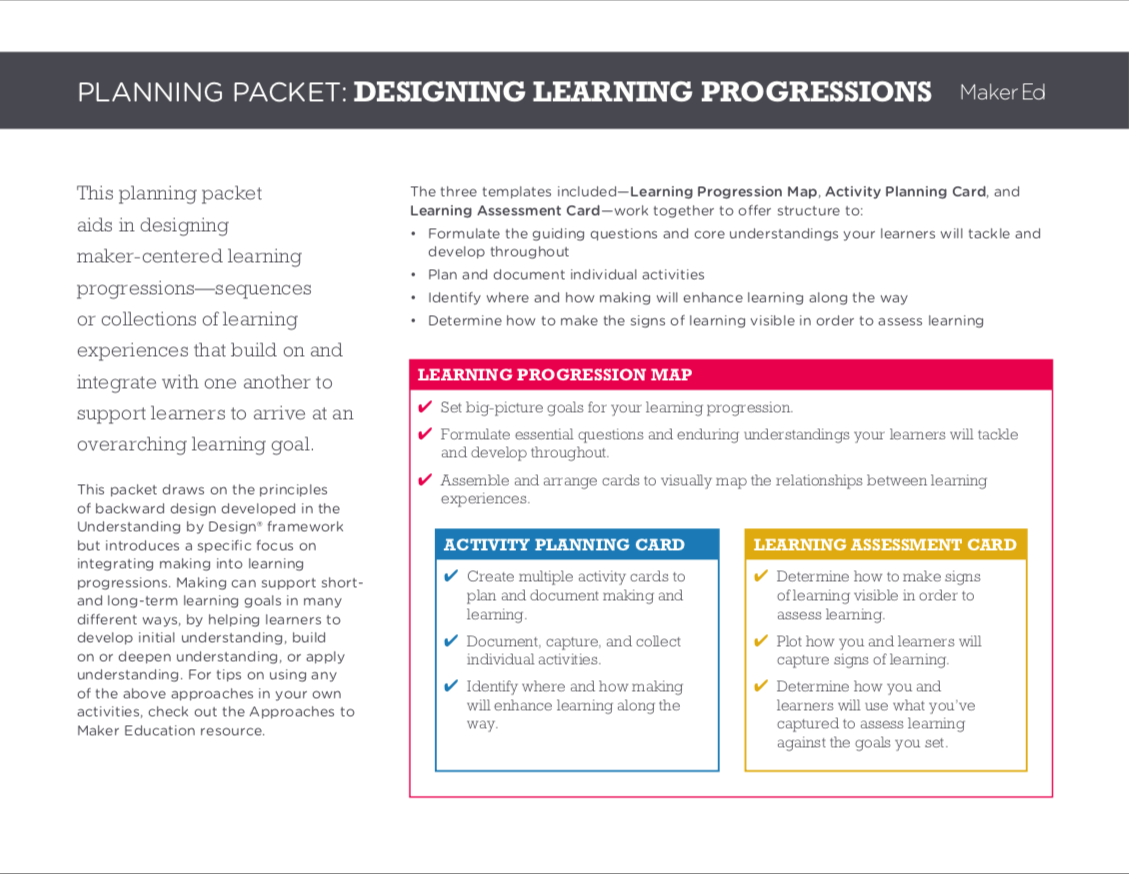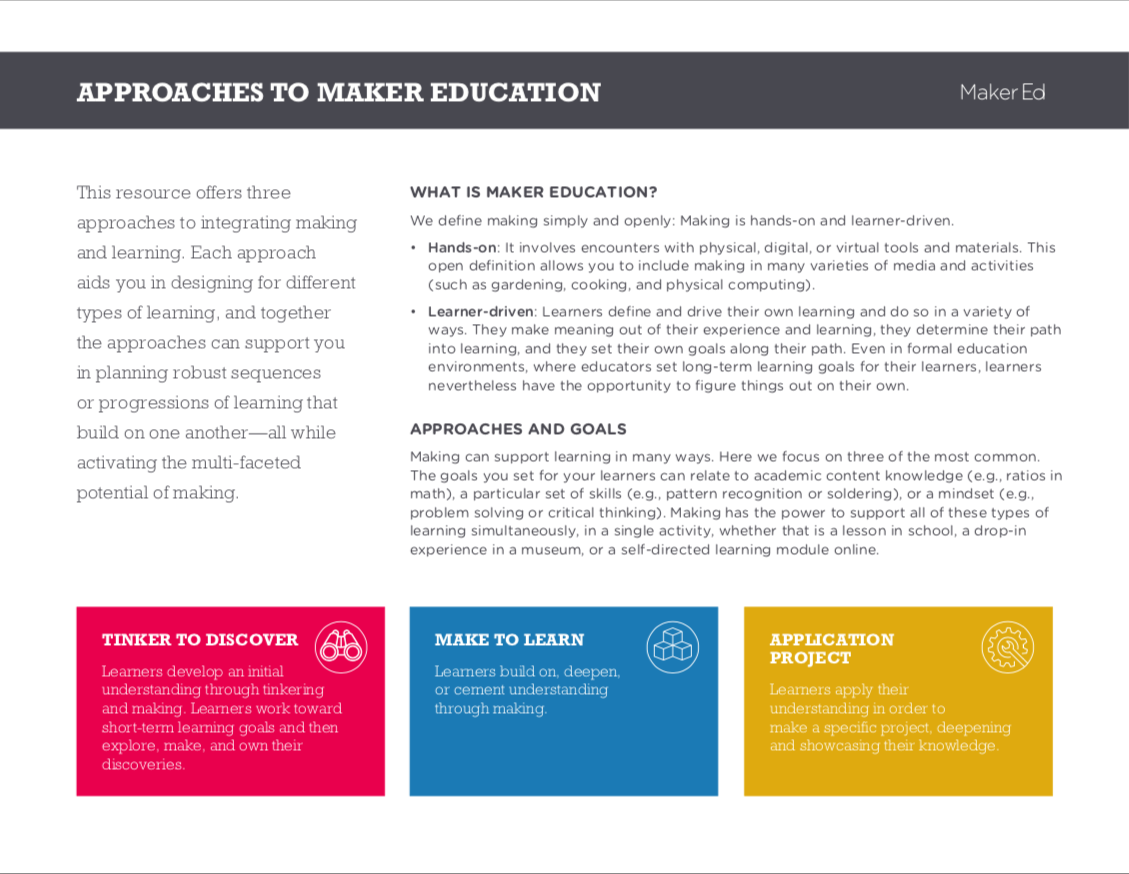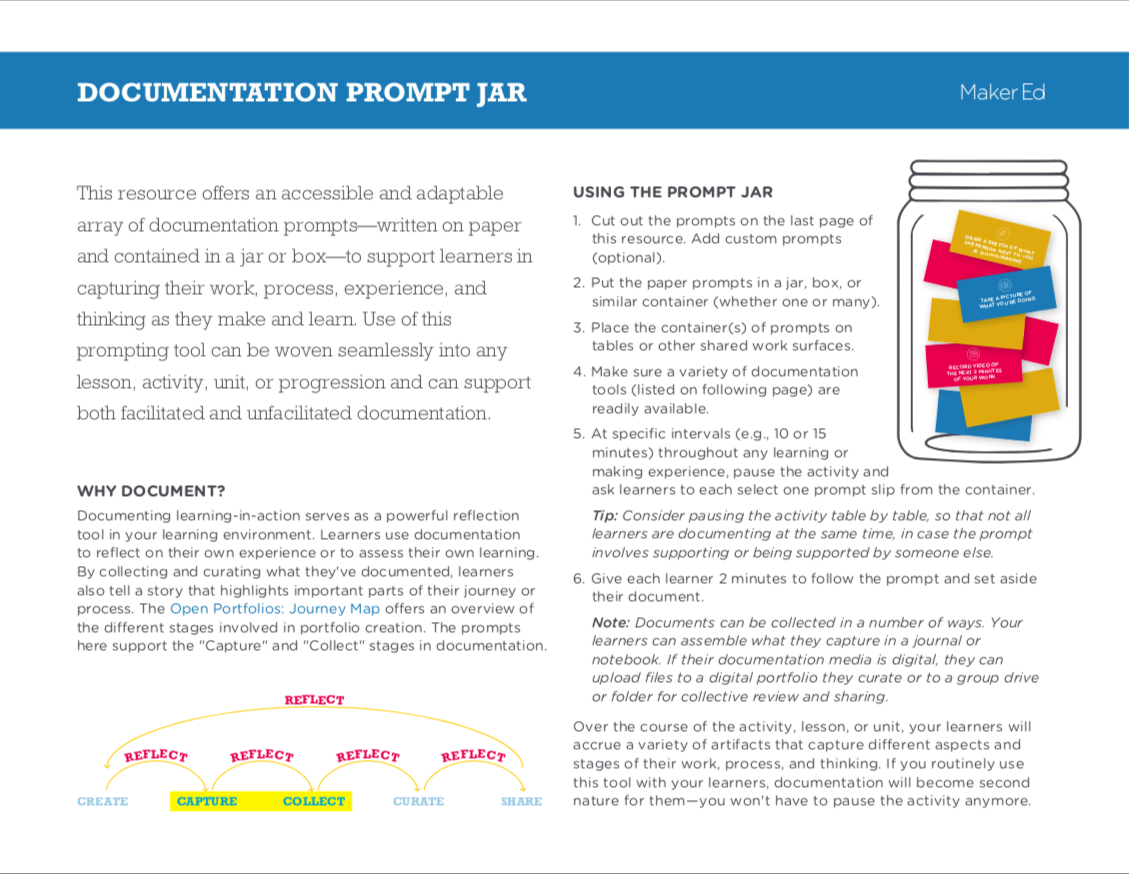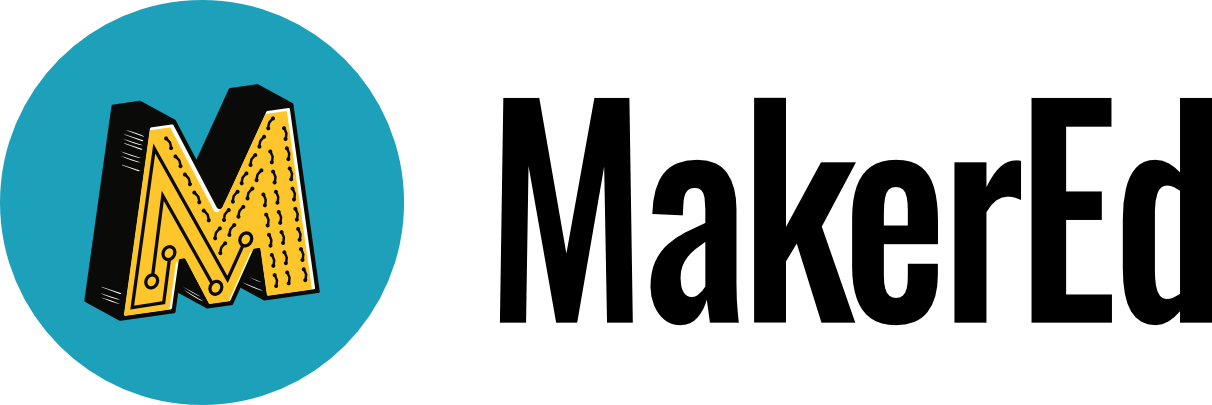Invention education involves your learners in a comprehensive design cycle, in which they identify problems, empathize and collaborate with others, prototype solutions, and make the case for novel contributions to their communities and the world. Weaving in hands-on making enriches the experience of learners, providing an authentic context for invention.
In this module, you will:
- Explore key ingredients of invention education.
- Map out an invention learning progression that integrates these key ingredients in support of defined learning goals.
- Design a series of learning experiences that use making to support discovery, ideation, prototyping, and learning.
What is invention?
What does an invention learning progression look like? Start by exploring key aspects and ingredients below.

Building an Invention Learning Progression
Before you get started, download the Planning Packet: Designing Learning Progressions to set the goals and chart the course of your invention learning progression.
Use the Learning Progression Map to plot where the key ingredients you explored above – problem identification, ideation, prototyping, and making the case – weave into your progression.
Now plan out your progression. You can start by sketching out an overview or jumping directly into planning individual activities and assessments using the Activity Planning Cards and the Learning Assessment Cards — print out, mix, match, and move them around.
As you create individual activities, use the Approaches to Maker Education to consider key elements of activity design and facilitation and to locate where and how hands-on making will support your learners to identify problems, explore solutions, and prototype and test.

- Use the Tinker to Discover Approach when it’s time for your learners to brainstorm solutions to the problem they’ve identified.
- As your learners prototype and test their solutions, use the Make to Learn Approach in order to build their skills and cement understanding of the learning goals you’ve set.
- Your learners will apply the learnings and understandings they’ve developed along the way as they finalize their solutions. Use the Application Project Approach both to frame the context of your learners’ inventions and to allow them to showcase their solutions.

The Learning Assessment Card allows you to formulate your approach and tools for assessing learning in your invention learning progression. Prime your learners capture their work, their process, their experience, and their thinking using the Documentation Prompt Jar. The rich portfolio of documents they’ll have from doing so will support them to reflect on their learning, make deliberate iterations and improvements on their inventions, and tell powerful stories to share their solutions with their communities and worlds. For additional agile approaches to assessing learning in process-oriented making and invention progressions, check out Beyond Rubrics: Moving Towards Embedded Assessment in Maker Education, Agency by Design’s Documentation + Assessment, and Maker Ed’s Open Portfolio Project.
To learn more about invention education as an approach, visit inventioneducation.org; for examples of invention learning progressions, check out the Lemelson-MIT Program’s JV InvenTeam Activity Guides; and for additional tools and resources that support key aspects and ingredients of invention education, check out The Henry Ford’s Innovative Learning Framework and Project Invent’s Digital Curriculum.
This module was developed in collaboration with Goli Mohammadi (editorial) and Kim Dow (design). Maker Ed would also like to thank The Lemelson Foundation for supporting the creation of this module and the resources contained here.




